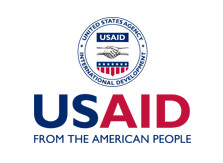(<< Back)
Achieving Results
To date, 215 community coalitions have been established in COMPASS-supported states. Their achievements have been impressive. In Bauchi State, a community coalition devised a strategy to secure a regular supply of vaccines and mobilized community members to get their children vaccinated. In Nasarawa State, a community coalition has been involved in mobilization activities to increase school enrollment, especially for girls.
Community coalitions have made substantial contributions to the renovation and construction of local schools and health facilities. In Lagos State, a community coalition raised funds for the construction of a primary health center to address the problem of residents traveling long distances to access health services.
Community coalitions actively fundraise to implement change in their communities. They conduct advocacy events to highlight issues and arrange meetings to obtain funding for their action plans. In so doing, they also garner support for policies and programs that improve service delivery in both health and education.
COMPASS is supporting community coalitions to hold Local Government Area (LGA) forum meetings to address issues that cannot be solved at the community level. These meetings help community coalitions advocate for policy changes that require the attention of high-level authorities, such as the inadequate number of female teachers and the exorbitant cost of antenatal care.
Other key COMPASS community mobilization interventions include:
- Communication-support materials (posters and leaflets): Promoting primary education and health facility services and helping community coalitions and other community-based groups reach various audiences with sensitization activities;
- Community tool kit: Providing community coalitions and community-based organizations with the resources to work more effectively and undertake their activities in a more systematic way. The kit includes simple pocket-sized booklets with key information on various health and education topics and specific actions community members can take to improve health and education in their communities;
- Radio programs and messages: Aimed at women, men and adolescents, these broadcasts address important health and education topics (girls’ education, quality of education, safe motherhood, child survival, child spacing, client and provider interaction, and adolescent physical and mental health) in order to promote positive behaviors;
- Training health service providers: Improving service providers’ interpersonal and counseling skills and teaching them how to promote themselves and the services they offer;
- Job aids: Updating the knowledge of community health providers and service providers and enhancing service delivery;
- Media trainings and media kit: Familiarizing reporters on achievements at the grassroots’ level and motivating them to write success stories about community members efforts to improve health and education services;
- Advocacy: Motivating decision makers to address policy issues at the state and local government level.
Across the five states 720 quality improvement teams have been established and are improving standards of quality at health facilities and primary schools.
|
